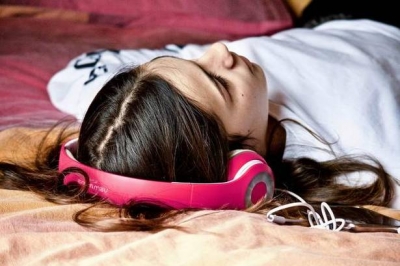Is music always good for your sleep?

What kind of a person are you? Do you always have your earphones on while at home, listening to music whenever you get a chance? Or do you use it just to wind down at night, listening to some soothing music as you drift away to sleep. Either way, you might be disrupting your sleep patterns, especially if you tend to have earworms frequently.
What are earworms?
Earworms correspond to catchy songs or tunes that persist in our minds long after we've finished hearing it. It is said to be an involuntary musical imagery and it often plays over and over in the person's mind. While these occur commonly to many people while awake, a recent research has tried to explore its effects on sleeping.
Sleep researcher Michael Scullin is an associate professor of Psychology and Neuroscience at Baylor University in the U.S. On realising that he was waking in the middle of the night with earworms, he decided to study how music, and earworms in particular, might affect patterns of sleeping.
Survey and experiment
His study involved both a survey and a separate laboratory experiment. Over 200 participants took part in the survey, which included a series of questions on sleep quality, music listening habits, and the frequency at which a participant usually experiences an earworm, especially those around bedtime and sleep.
The lab experiment was conducted on 50 participants. The researchers tried to induce earworms and tried to figure out how it affects sleep quality. Polysomnography, a comprehensive sleep test, was used to record the participants' sleep quality.
The results from the research were contrary to popular wisdom that states that music is hypnotic and aids in sleeping. The researchers came to the conclusion that people who caught an earworm not only had difficulties in falling asleep, but also had more night-time awakenings and spent a larger share of time in light stages of sleeping.
What's more, the study showed that individuals who listened to music more often through the course of the day experienced persistent earworms and also a decline in sleep quality.
Write before you sleep
Apart from moderating music listening and taking the occasional breaks, Scullin suggests staying away from demanding activities for the brain (such as watching television, playing video games) near bedtime. Just spending five to 10 minutes of your time by putting down your thoughts or writing a to-do list before going to bed would not only help you sleep faster and better. but also help offload worrying thoughts.
Picture Credit : Google